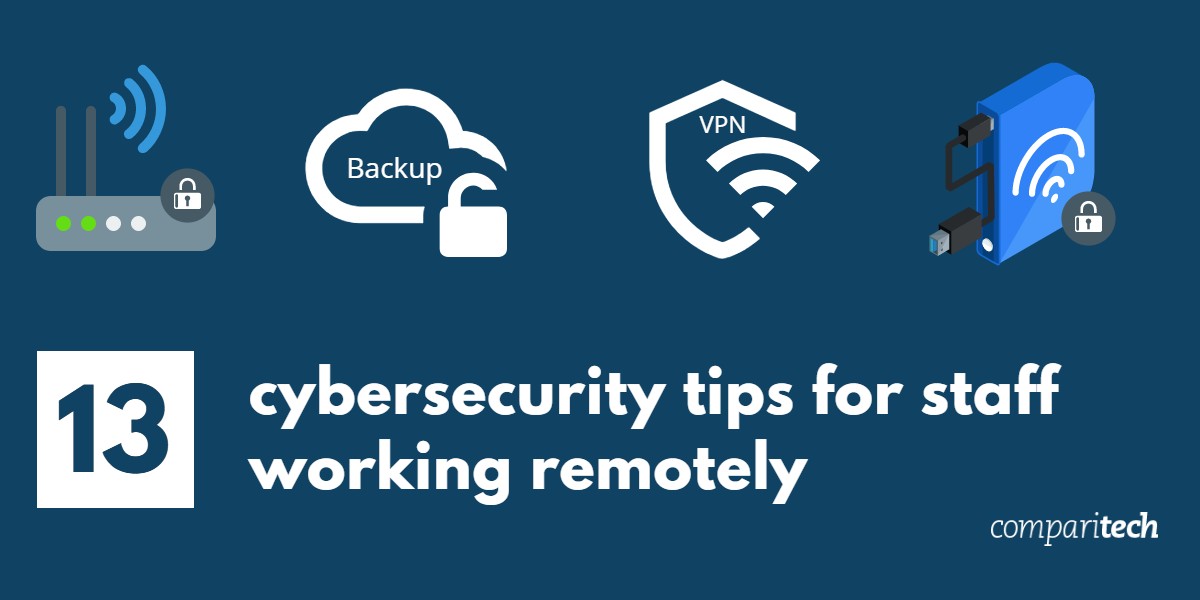As a remote worker, there are many benefits that you can take advantage of. There is no need to contend with a commute to and from the workplace and interruptions are kept at a minimum. It can also feel as though you have more freedom while you work, and it’s quite normal to be more productive when working remotely. However, for all its benefits, remote working can pose some challenges or obstacles that you should be aware of and have a plan for addressing. One such challenge is how you ensure your data, documents and information are kept safe and secure on your computer when working from home.
Where it used to be that cybersecurity was something that only seemed to impact large businesses, today any business of any size and in any industry can be a victim. Remote workers in particular can be at risk since they may not have the same levels of cybersecurity to rely on. So, what can you do to remedy the situation? Here are five cybersecurity tips that are essential for remote workers.
Make Sure You Perform Updates Promptly
How many times have you been notified that an update is available for your computer, software or a particular app only to ignore it and tell yourself that you’ll get to it later? It’s something everyone has likely done at one point or another and, while it may seem harmless enough, you are leaving your computer and data vulnerable.
Updates are available for a reason; they keep your device safe and secure, which means all the sensitive information you work with is protected. As soon as you get a notification to do an update, that’s when you should do it.
Choose Strong Passwords
This particular tip can’t be stressed enough, but it’s very important that, when choosing passwords, you pick strong ones. You want to make it as difficult as possible to be hacked, and that means using random passwords.
Experts recommend the following tips when picking a password:
- Use at least 12 characters
- Use a mixture of upper and lowercase characters
- Use at least one symbol
- Use at least one number
The more random you can create the password, the stronger it will be. There are also websites online where you can enter in sample passwords and it will rank how weak/strong it is.
Consult with IT Professionals
Sometimes it can be a good idea to admit you are out of your comfort zone and you need help. Consulting with IT professionals allows you the opportunity to get customised advice and solutions that ensure nothing is overlooked. It will give you peace of mind that you’ve done everything you possibly can to secure your data in the most up-to-date and safe manner. Managed services is something Bristol IT company Dialageek can provide. They can help protect your systems and sensitive data, and ensure you adhere to compliance regulations. Their support is also available 24/7, giving you one less thing to worry about if you do run into any issues.
Use a Separate Device for Work-Related Tasks
It can be tempting to use one device for all your tasks when working remotely, but this can end up posing a problem. Experts always suggest that remote workers use separate devices for work than for personal use. This may mean you have multiple smartphones, laptops and tablets, but this is how you increase security while working remotely.
All you have to do is think about the many apps, social networks and websites you visit on your device. All of that activity puts you at risk of being hacked. If you’re avoiding those platforms on your work device, then you will naturally reduce the risk profile. If you happen to manage a remote team, this is a rule that should be discussed in advance so that all employees follow it. Work devices are for work only.
Do Not Open or Visit Anything Suspicious
Then there are the many scam and phishing scams that unfortunately exist. You need to get very smart and quick at identifying these security risks so that you don’t open anything suspicious and only visit secure websites. So, what specifically should you watch out for? A few basic tips to follow include:
- Don’t open emails from an organisation that uses a Yahoo or Gmail account, as this isn’t a professional business account.
- Does the text sound legitimate? Are there spelling and grammar mistakes?
- Is the email addressed to you by name, or is it generic?
- Make sure you’re always using a secure email provider.
All of these tips will help you to stay secure and safe while working remotely. Using a combination of these tips will increase your security level even more, giving you extra peace of mind.
The post 5 Cybersecurity Tips for Remote Workers appeared first on .


